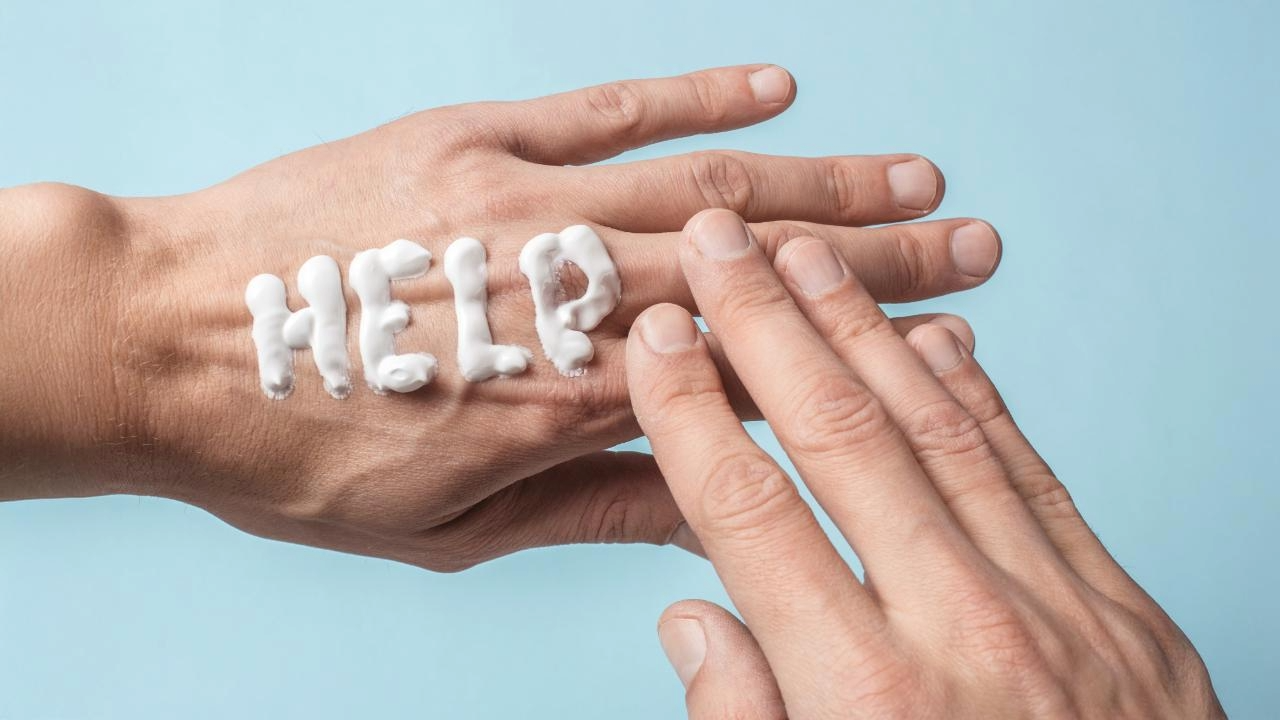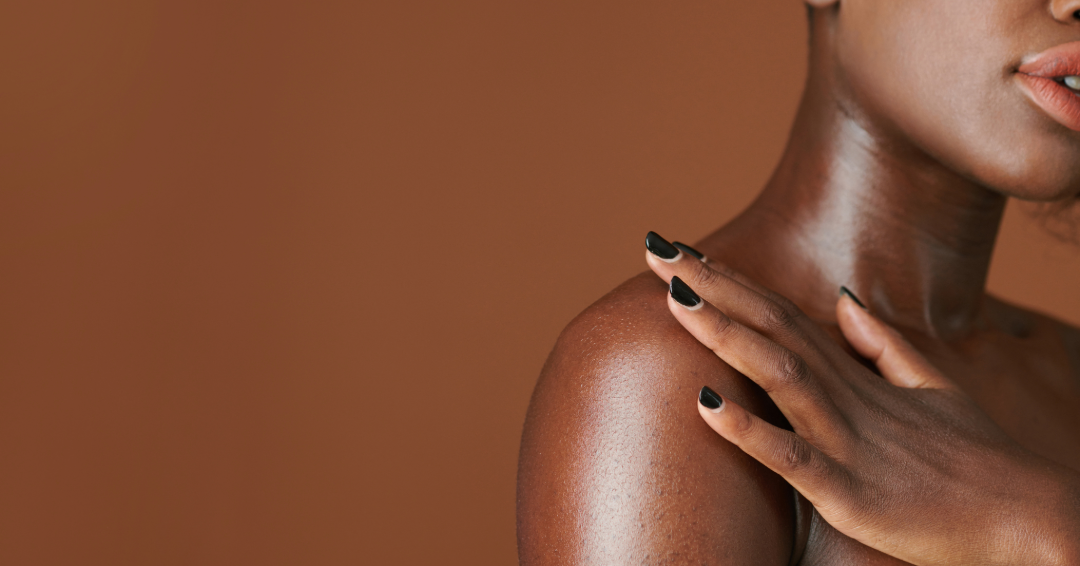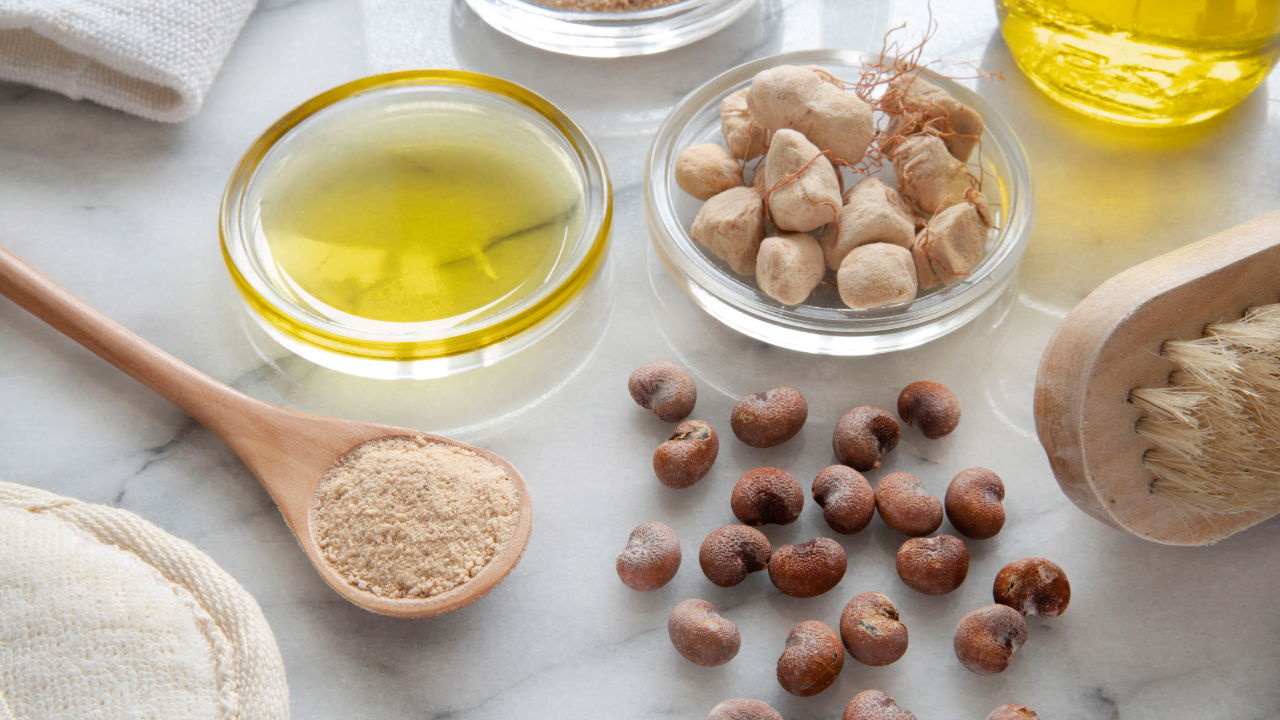Introduction
Hey there! Are you looking for a natural solution to your skincare needs? Look no further than shea butter!

So what exactly is shea butter? Well, it's a natural fat extracted from the nuts of the shea tree, which is native to West Africa. Shea butter has been used for centuries for its moisturizing and healing properties, and it's now becoming more and more popular in the beauty industry.
But what are the benefits of using shea butter on your skin? The list is long, but just to name a few, shea butter can help to soothe dry and irritated skin, reduce the appearance of fine lines and wrinkles, and even out skin tone. It's no wonder that more and more people are turning to this natural wonder for their skin care needs!
What is shea butter made out of?
Now that we know what shea butter is, let's take a closer look at what it's made of and how it's produced.
Shea butter is made from the nuts of the shea tree, which are harvested and then roasted to help release their oils. The oils are then extracted and processed to create the final product, which can range in color from off-white to yellow, depending on the level of processing.
The process of making shea butter is a labor-intensive one that typically involves hand processing by women in rural West Africa. These women have been making shea butter for generations, and the traditional methods they use ensure that the shea butter is of the highest quality.
At Merin Kind, we source our shea butter from women-owned cooperatives in Nigeria to support these communities and ensure that we're providing our customers with the best possible product.
What does shea butter do to your skin?
So what exactly does shea butter do to your skin? Well, the short answer is: a lot!
First and foremost, shea butter is an excellent moisturizer. It contains high levels of fatty acids and vitamins that help to hydrate and nourish your skin, leaving it soft and smooth.
But the benefits of shea butter go far beyond just moisturizing. It's also great for treating dry, peeling, and cracked skin, making it an ideal choice for those with eczema or other skin conditions. In fact, shea butter has been used for centuries in Africa to treat a wide range of skin conditions, from burns to stretch marks.
In addition to its moisturizing and healing properties, shea butter is also a natural anti-aging cream. It contains antioxidants that help to fight free radicals, which can cause damage to your skin over time. Regular use of shea butter can help to reduce the appearance of fine lines and wrinkles, leaving your skin looking younger and more radiant.

Finally, shea butter has also been shown to be effective for treating a variety of skin discolorations, including age spots, sunspots, radiation burns, and dark skin discoloration caused by eczema. Its natural lightening properties can help to even out your skin tone, leaving you with a more youthful and glowing complexion.
Overall, it's clear that shea butter is a true powerhouse when it comes to skin care. Whether you're dealing with dry, peeling, or cracked skin, looking for a natural anti-aging cream, or trying to even out your skin tone, shea butter is definitely worth giving a try.
Can I put shea butter on my face?
If you're looking for a natural way to improve the health and appearance of your skin, you might be wondering: can I put shea butter on my face? The answer is a resounding yes! Shea butter is a versatile and effective ingredient for promoting healthy skin, and it's safe to use on your face.
One of the main benefits of using shea butter on the face is its moisturizing properties. Shea butter is rich in fatty acids and natural oils that can help to hydrate and nourish the skin, leaving it soft and supple. It's also high in antioxidants, which can help to protect the skin from damage caused by free radicals.
But that's not all – shea butter is also effective at treating a range of common skin conditions, including acne, eczema, and stretch marks. Its anti-inflammatory properties can help to reduce redness and swelling, while its antibacterial properties can help to fight off acne-causing bacteria. Meanwhile, its moisturizing properties can help to soothe dry, itchy eczema, and its healing properties can help to fade stretch marks over time.
So, how should you use shea butter on your face? There are a few different ways to incorporate shea butter into your skincare routine. You can use it as a standalone moisturizer, applying a small amount to your face after cleansing and toning. Or, you can mix it with other natural ingredients like coconut oil or essential oils to create a customized skincare treatment. Just be sure to test a small patch of skin before applying it all over your face to make sure you don't have an allergic reaction.
In conclusion, using shea butter on your face can be a great way to improve the health and appearance of your skin, while also treating common skin conditions like acne, eczema, and stretch marks. Just be sure to use it as directed and be mindful of any potential allergies or skin sensitivities.
How often should you apply shea butter?
If you're thinking of incorporating shea butter into your skincare routine, you might be wondering: how often should you apply it? The answer depends on your skin's specific needs, but in general, using shea butter once or twice a day should be enough to see the benefits. Overusing shea butter can potentially clog your pores or cause skin irritation, so it's best to start with a small amount and work your way up if needed.

It's also important to note that using shea butter too frequently can lead to some potential side effects. For instance, if you have acne-prone skin, using too much shea butter could potentially exacerbate your breakouts. Additionally, using shea butter on the face too often could lead to oil buildup and cause your pores to become clogged. If you notice any adverse effects, reduce the frequency of your shea butter usage or discontinue use altogether.
Shea butter as a natural product for dry skin during pregnancy
Pregnancy can cause many changes to your skin, including dryness, stretch marks, and even eczema. Fortunately, shea butter can be a safe and effective solution for these common issues.
One of the main benefits of using shea butter during pregnancy is its ability to prevent and treat stretch marks. Shea butter's moisturizing properties can help to keep your skin hydrated and supple, which can in turn help to reduce the appearance of stretch marks. Additionally, its anti-inflammatory properties can help to soothe and calm any skin irritation or redness.
Shea butter can also be an effective treatment for dry skin during pregnancy. Its hydrating properties can help to soothe and soften dry, itchy skin, while also protecting against further moisture loss. And because shea butter is a natural product, it's safe to use during pregnancy, provided you don't have any allergies to it.
In conclusion, shea butter can be a great natural solution for common skin issues during pregnancy, including stretch marks and dry skin. However, it's important to use it in moderation to avoid potential side effects, and be mindful of any allergies or sensitivities. As always, consult with your doctor or dermatologist if you have any concerns about your skincare routine during pregnancy.
Conclusion
Shea butter is a versatile product with numerous benefits for skin care. To recap, using shea butter can help moisturize and soothe dry, peeling, and cracked skin. It is also a natural anti-aging cream that can help reduce the appearance of fine lines and wrinkles. Shea butter is effective for treating age spots, sunspots, radiation burns, and dark skin discoloration caused by eczema. Additionally, it can be used to treat acne, eczema, and stretch marks.
In summary, shea butter is a natural and effective product that can be used to address a variety of skin concerns. Its moisturizing and anti-inflammatory properties make it an excellent choice for those with dry, sensitive, or eczema-prone skin. Its anti-aging properties and ability to reduce the appearance of dark spots and stretch marks also make it a popular choice among those looking to improve their skin's overall appearance.



